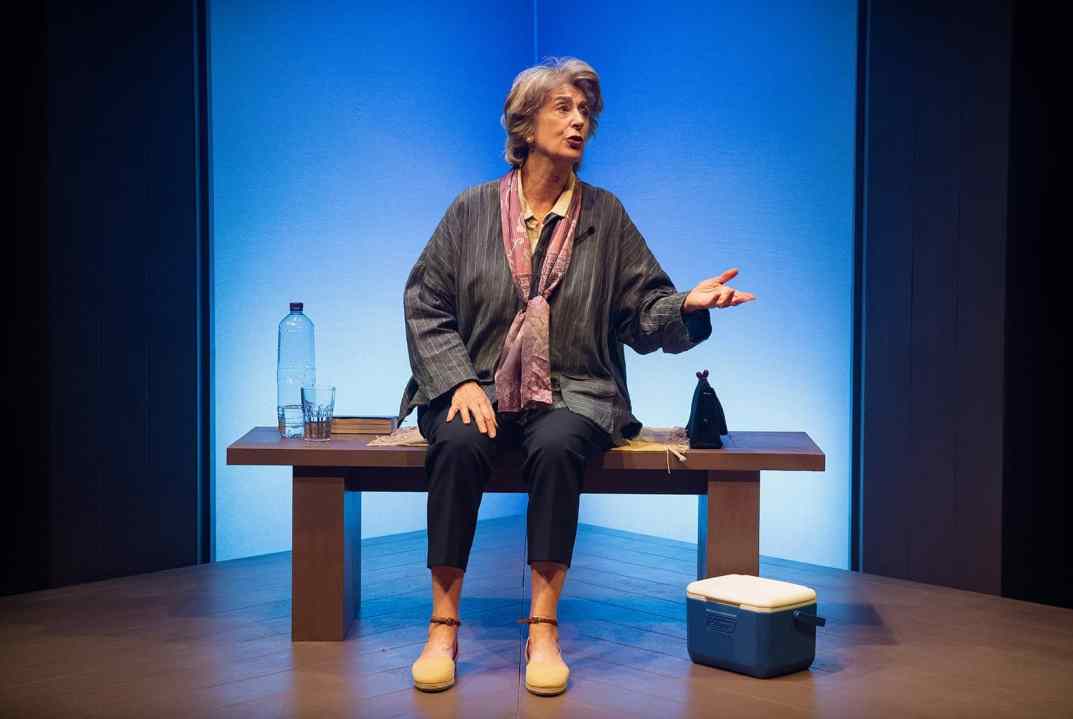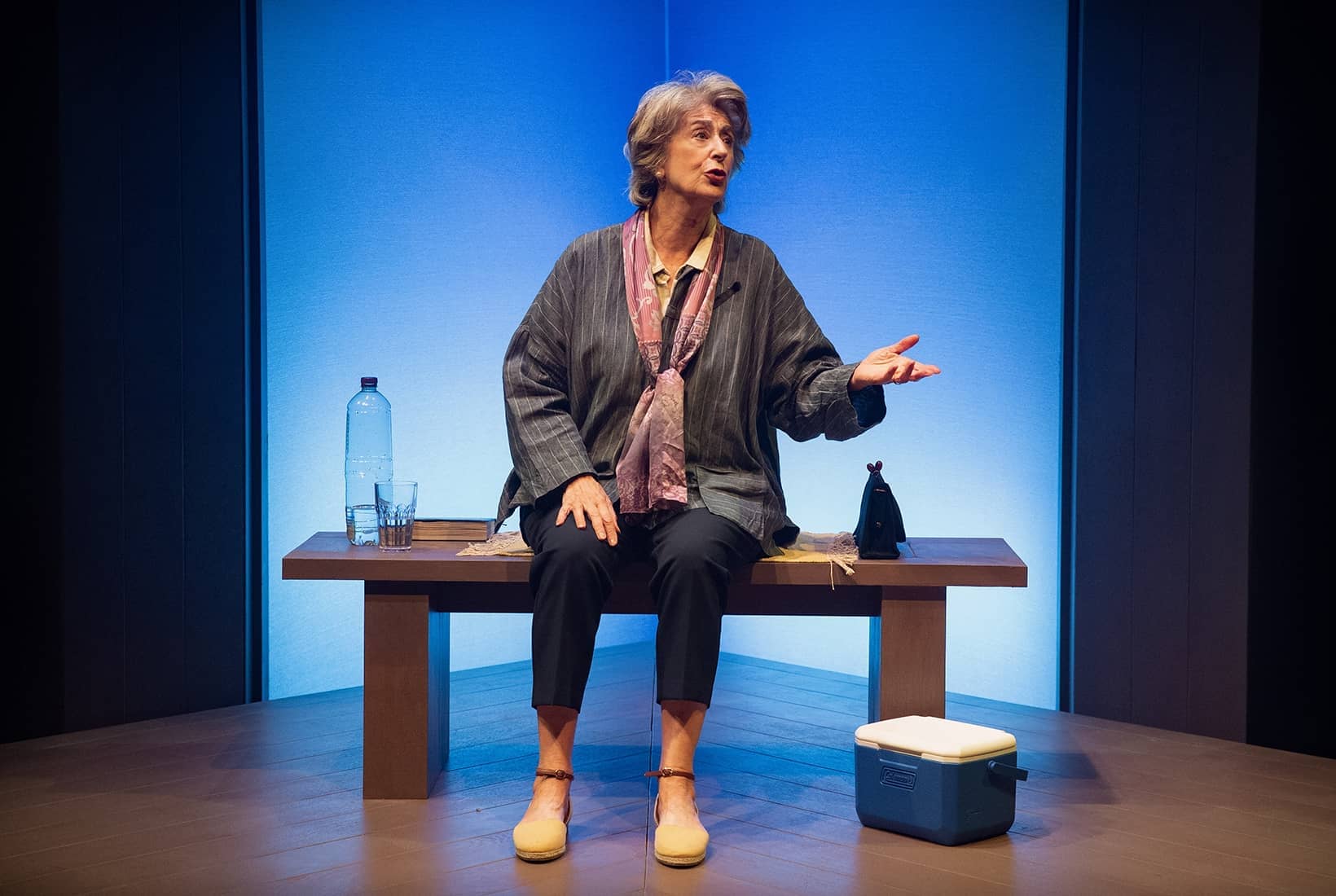Look at this line. ‘I’m 80 years old. I find that unforgivable.’ Could an actor get a laugh on ‘unforgivable’? Maureen Lipman does just that in Rose, by Martin Sherman, a monologue spoken by a Ukrainian Jew who lived through the horrors of the 20th century. In the opening sections, Lipman plays it like a professional comic and she fills the theatre with warm, loving laughter. Rose’s dad is a hypochondriac who spends all day in bed. ‘He never stopped dying but as far as we could tell there was nothing wrong with him.’ Eventually he loses his life when a wardrobe stuffed with pills topples on to him. ‘He was crushed to death by medicine.’
As a teenager, Rose witnesses a raid by Cossack horsemen but their savagery is relatively benign. ‘They didn’t try to harm us. They just smashed everything up.’
One hesitates to call a work a ‘masterpiece’ but this production aims for and fulfils that ambition
She gets through by accident. She’s never at the centre of events but somehow she finds herself in the wrong place at the right time. She left for Poland in 1937 and dodged the Nazi genocide in Ukraine. In 1939, when the Germans arrived in Warsaw, she was unconcerned. ‘It’s someone else’s war.’ Having witnessed the violence of the Cossacks, she felt prepared for further mistreatment. ‘How much worse could the Germans be …?’ After that Lipman says nothing – and her silence contains the souls of six million people.
Rose takes a job outside the Jewish quarter in a factory whose owner isn’t anti-Semitic. One afternoon she spots flames rising from the ghetto but she isn’t allowed to leave the building and protect her daughter, Esther. ‘We had to go back to our machines.’ It’s not clear how the child died. Rose won’t say. Or she can’t. At the same time, she loses her husband, Yussul, an artist with a glass eye.
After the war, sailing for Palestine, she’s nearly killed by British sailors who board her vessel and brutalise the passengers. A teenage lad, who had escaped from a concentration camp, is shot dead by a British bullet. Years later, Rose emigrates to America and by a freakish accident she notices an elderly man with a glass eye and a number tattooed on his arm. Is this Yussul? Almost certainly. But she won’t tell us whether she introduced herself or not. The beauty of this exquisite piece lies in its evasions and silences. The voids and shadows speak louder than the clear bold outlines. One hesitates to call a work a ‘masterpiece’ but this production aims for and fulfils that ambition.
The P Word focuses on the tribulations of the Pakistani gay community. We meet Zafar, a textile worker in Lahore, who starts an affair with a married man. His lover is murdered by a homophobic gang and Zafar flees to Britain. His life is saved. But rather than celebrating his good fortune he sinks into surly resentment. He dislikes his cheap digs in Hounslow and he complains that his benefit payments are insufficient to cover his personal-grooming budget. As a textile worker, he expects to dazzle west London with the latest men’s fashions. He befriends a gay Pakistani, Bilal, who has a trendy job in advertising but can’t get promoted because his bosses are white supremacists.
Zafar’s case is heard by a nasty immigration officer who asks him to parade up and down the room. A note is recorded in his file: ‘Doesn’t walk like a gay.’ Zafar is then told to take snaps of himself at a Pride march to prove how gay he really is. Can any of this be true? It’s hard to tell because the writer, Waleed Akhtar, is so anxious to find fault with Britain. He claims that the UK is responsible for the criminalisation of homosexuality in Pakistan (which has been independent since 1947). And his script ignores the killers of Zafar’s lover even though Zafar knows who led the gang: his own father. The chances of prosecuting him appear to be nil but Zafar doesn’t care about that.
And he gives the Islamic world a free pass too. He notes that one in 20 people are gay so there must be 100 million gay Muslims most of whom live in societies where it is difficult or illegal for them to express their sexuality. Yet he prays devoutly and encourages Bilal to observe the faith more closely and to embrace the traditions of his ancestral homeland.
What a strange play. It celebrates the culture of Pakistan where gays are apparently murdered with impunity and it pillories the culture of Britain where those fleeing violence are accommodated and supported. But it’s pointless to stage this show in multicultural west London because the problem isn’t here. It’s there. If the producers really want to change people’s minds, they should transfer it to Lahore and see how that works out. What can be stopping them?








Comments